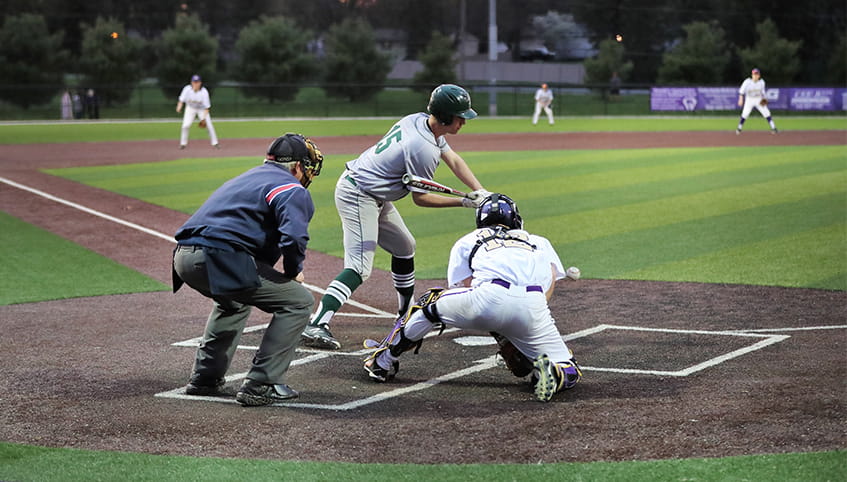No person is an island – especially not youth athletes. Athletes require training, support and specialized medical attention to ensure a healthy life from youth to adulthood.
Proper care for young athletes begins with the coach, according to David M. Smith, MD, youth sports medicine medical director at The University of Kansas Hospital Sports Medicine and Performance Center.
"It's so important for coaches to have appropriate, up-to-date training," he says. "Some may coach their players the way they were coached in high school, which isn't necessarily safe or correct for today's athletes. Coaches also need to have the proper background and certification for the sport they're coaching, because they need to understand the injuries their players may sustain."
Dr. Smith also emphasizes that parents play an important role in keeping a young athlete healthy. He offers a variety of ways for parents to guide their children.
- Encourage your child to do the training that coaches and athletic trainers suggest. For example, proper off-season strength training – which may be specific to certain sports – can really enhance performance during games.
- Persuade them to practice, but don't nag. Even though young athletes get excited about playing a game, they're usually less enthusiastic to practice. Dr. Smith notes that practice is what prepares them for the stress their body experiences during a game.
- Make sure your child is enjoying the sport. If your child seems to dread practice or is anxious about playing, find out why.
- Resist putting undue pressure on your child. It's tempting to urge your kids to engage in activities you were involved in or excelled at, but it's not wise to pick a sport for them. Remember, many kids burn out early as a result of unrealistic expectations placed on them by others.
- Praise your child. Developing discipline is one of the major goals of athletics. Teach your child to set a goal and work toward it. But if it isn't accomplished, don't allow feelings of failure. Help your child understand that putting forth the effort, showing up for practice and doing their best is the ultimate goal – and the ultimate success.
- Encourage your child to have an off-season. Without an off-season to prepare and recover, athletes are at a higher risk for injuries, burnout and unnecessary stress.
Recognizing when a young athlete is struggling is also important to prevent additional injuries. Dr. Smith suggests a few more tips to keep in mind.
- Expect some general achiness or soreness after practice begins.
- Be on the lookout for localized pain, as it may be related to injury.
- Some kids think they should be tough and not admit pain. So encourage your athlete to let people know they're in pain.
- Pay attention to physical symptoms, such as limping or carrying an arm. If your child normally walks or lifts something in a certain way, notice if their method changes suddenly. It could be a sign of an injury.
If you notice your young athlete exerting any of these symptoms, encourage them to speak with their athletic trainer. Many high schools employ on-site, hospital-affiliated athletic trainers to ensure athletes receive the highest level of injury prevention, evaluations, rehabilitation and reconditioning. The Sports Medicine and Performance Center alone has athletic trainers in 14 high schools throughout the Kansas City area to help athletes perform at their best.
If the athletic trainer or coach suspects an injury requiring medical attention, it is vital that young athletes receive care from sports medicine specialists. While teenage athletes may fall within the age of pediatric or family medical care, orthopedic surgeon E. Bruce Toby, MD, at the Sports Medicine and Performance Center stresses that "anatomical specialization trumps everything, including age-related specialization, particularly when talking about significant sports injuries.”
The distinction of seeing a sports medicine physician who specializes in specific areas of the body ensures young athletes receive expert care to repair the injury, facilitate recovery and avoid future injuries when returning to their sport. Whether your discus thrower suffers a shoulder ligament injury or your football star tears their ACL, sports medicine physicians are trained to get them back to it as soon and safely as possible – and help maintain that health as young athletes continue competing in adulthood.





